With the development of VFD (Variable Frequency Drive) technology, more and more VFDs are used in the cement industry to meet different needs. INVT took more than 10 years to design and generalize VFDs for cement industry.
After more than 10 years' application and verification, INVT VFDs not only meet with customer different needs, including rotary kiln drive but also bring high trustworthiness and great return to customer.
In the policy environment of energy conservation and emission reduction, every cement plant wants to optimize manufacturing process and reduce power consumption. INVT is very glad to use our rich experience and improved technology to help cement plants achieve that goal.
Each cement plant is facing one common challenge: Increasing product quality and reducing operating costs.
As product quality demand increases and production cost goes up, but the cement price drops, what the cement industry needs to do urgently is use the most efficient technologies to safeguard its future.
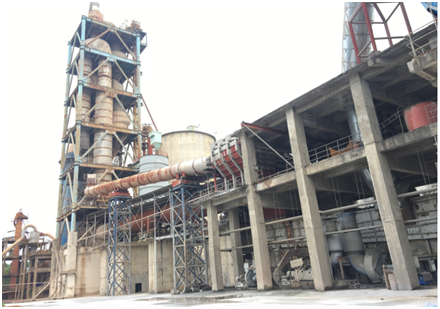
Cement plant has below detail challenges:
Challenges:
1.Huge power consumption
Cement production is very energy-intensive. Much of the energy used is consumed on the electric motors. Still today, many of these motors are constantly running at full speed regardless of actual output requirements, wasting a tremendous amount of energy.
2.High cost of devices maintenance
In cement factories, there are many motors running at full speed which aren‘t optimal state. The mechanical structures of these motor loads need to take much cost and time to maintenance.
3.Low availability of equipment with frequent shutdown
Many devices in the cement are mechanical structures and motors which are not running at optimal state. Due to that issue, the availability of equipment is low; sometimes the process of manufacturing may be shutdown.
As the asynchronous motor and variable frequency drive technology developed, VFD and the asynchronous motor are the perfect combinations. VFD can make asynchronous motor running at optimum condition. With the appearance of VFD, it can solve problems above well.

Cement industry process:
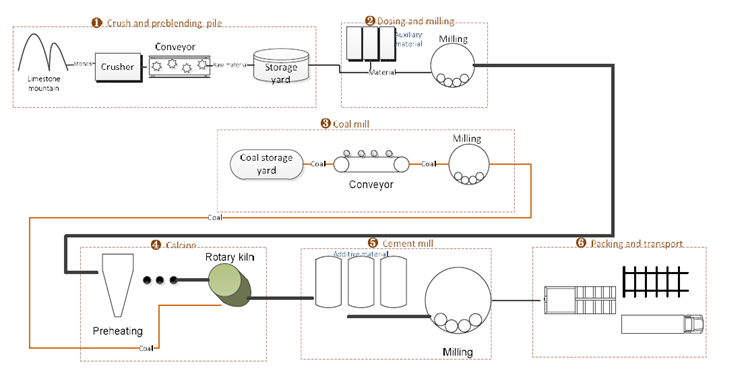
Pig.1 Whole cement production process flow diagram
1.Crush and pre blending pile
- Conveyors
- Crushers
- Plate feeder
- Stocker
- Reclaimer
2.Dosing and milling
- Plate hoister
- Mills
- Conveyors
- Raw material mill ID fan
- Fans
3.Coal mill
- Conveyors
- Crushers
- Millings
- Stocker
- Reclaimer
- Coal mill ID fan
- Fans
Calcine
- Kiln head fan
- Kiln end fan
- Preheater high-temperature fan
- Hoister
- Rotary Kiln
- The grate cooler
- Fans
- Pumps
Cement mill
- Bucket elevators
- Conveyors
- V-separator
- Milling
- Cement mill ID fan
- Fans
Packing and transport
- Cement bag packing
- Conveyors
Benefits of variable speed drives:
High light INVT medium voltage AC drive
Lower power consumption and higher energy saving. For example, mill ID fan using VFD the energy saving ratio is more than 30%.
Increasing product of cement and improving production efficiency.
Ensuring cement manufacturing process reliability.
Minimal wear and tear of equipment.
Soft starting.
Flow and pressure control.
Fast and precise process control.
Lower maintenance costs and longer lifetime of equipment.
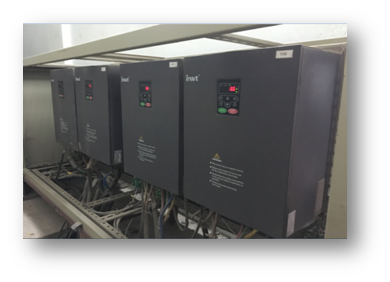
Educed CO2 emissions.
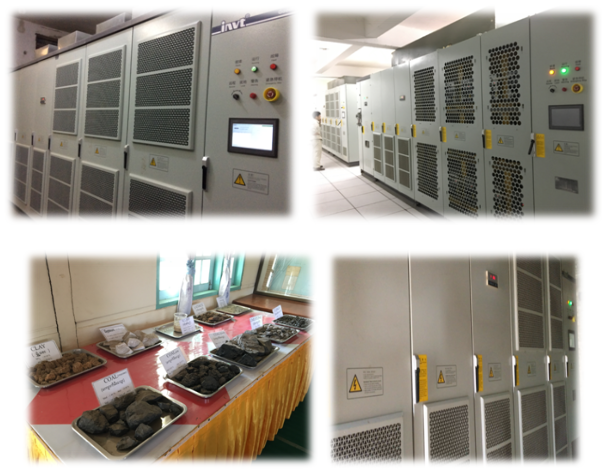
INVT support diversified configuration
For cement industry, INVT can support not only VFDs but also mechanical reformation for hydraulic coupling, variable frequency and grid power frequency switching with synchronous switch cabinet, separate cooling air duct and plenty of communication cards.
INVT support systems include:
-Remote box
-VFD cabinet
-Variable frequency drive
-Mechanical reformation for hydraulic coupling
-Modbus/Profibus/Ethernet communication protocol
-INVT studio PC monitoring tool
-Separate cooling air duct system
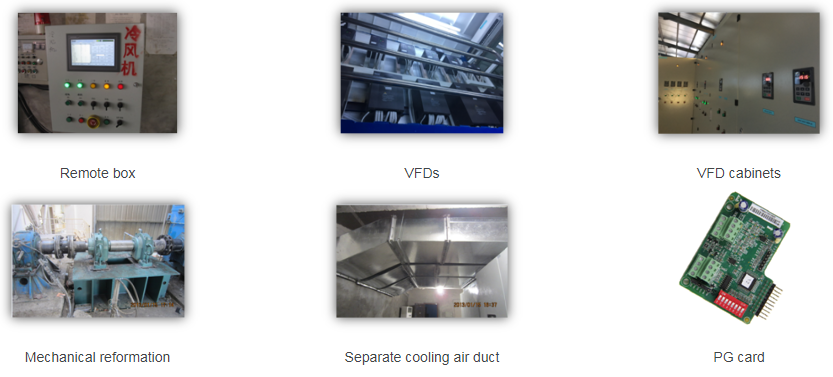



Our site uses cookies to provide you with a better onsite experience. By continuing to browse the site you are agreeing to our use of cookies in accordance with our Cookie Policy.